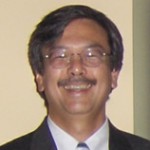Shocking Incentives
Last week I shared the concept called The Sawyer Effect: Reward turns play into work.
My friend, Chuck Blakeman, says that Industrial Age thinking about retirement gives The not so subtle message… that work and play do not mix, and that you are really supposed to live two lives – your work life and your meaningful life (shouldn’t work be meaningful, too?).
Imagine if we were able to live out the positive side of the Sawyer Effect: Focusing on mastery makes work play.
How might we reward mastery? There’s an old saw that some people who’ve been in a job for ten years have one year of experience repeated over and over. That’s certainly not mastery!
A friend’s daughter once asked Yo-Yo Ma, the greatest living cellist, what she could do to become a great musician. “The key to becoming a world-class musician,” he said,” is to learn to love to practice, to practice every day as if you’re sitting on stage at Carnegie Hall for your debut concert.” Now that’s mastery!
Mastery is its own reward. Mastery is attained when there’s a match between what a person can do and what that person must do. If the “can” exceeds the “must,” boredom develops. And when the “must” greatly exceeds the “can,” anxiety ensues. Mastery is about tackling “Goldilocks” tasks—neither too hard nor too easy— where one is “’walking the tightrope between accident and discipline.’”1 Practice is like being on stage at Carnegie Hall.
How do we develop mastery in whatever we do? Daniel Pink suggests three keys to developing mastery:
- “Mastery is a mindset.” There’s a Hebrew proverb, “As a person thinks in his heart so he is” (Proverbs 23:7). If one begins believing mastery is impossible to achieve, it will be. If one begins believing it’s possible, mastery will be inevitable.
- “Mastery is pain.” Pink tells us that researchers found the reason one in twenty West Point cadets drop out after seven weeks of Basic Training: those who drop out rated low in “grit”—“perseverance and passion for long-term goals.’” The scholars concluded, “’ [I]n every field, grit may be as essential as talent to high accomplishment.’” Dr. J., the famous basketball player, said, “Being a professional is doing the things you love to do, on the days you don’t feel like doing them.”
- “Mastery is asymptotic.” In this algebraic concept, an asymptote is a graphed curve that approaches but never quite touches the line. Paul Cézanne, the 19th century French painter, created his greatest work “asymptotically” toward the end of his life. Why then? “’For [Cézanne], the synthesis [of design] was an asymptote toward which he was forever approaching without ever quite reaching….’” 2
What a great way to finish well!
Toolkit:
[caption id="attachment_203" align="alignright" width="150"] Jon Hokama is the Principal and Founder of Jon Hokama and Associates, LLC.[/caption]
Jon Hokama is the Principal and Founder of Jon Hokama and Associates, LLC.[/caption]
Want to be on the path to mastery this week? Which of the three tools will you take with you:
- a new mindset,
- grit, or
- pursuit of an asymptote?
I welcome your thoughts/comments!
1p. 117, Pink, Daniel H., Drive: The Surprising Truth About What Motivates Us. New York: Riverhead Books, 2009.
2Ibid, p. 125
The following article Shocking Incentives Read more on: American Business Advisors of Denver
Comments
Post a Comment